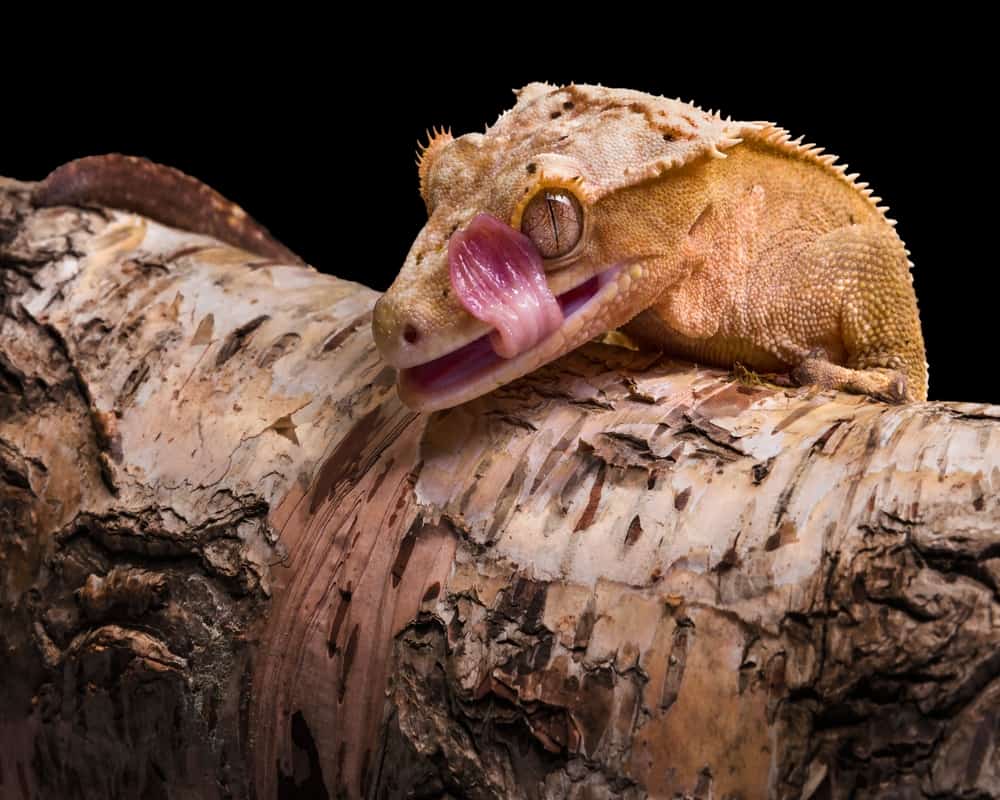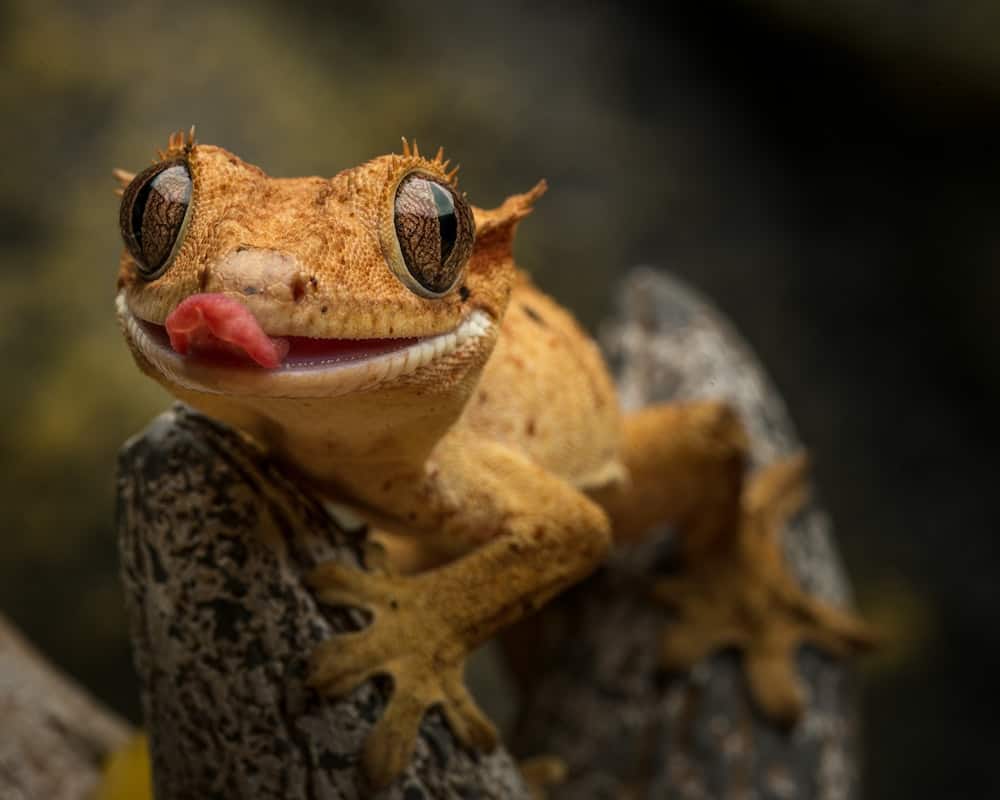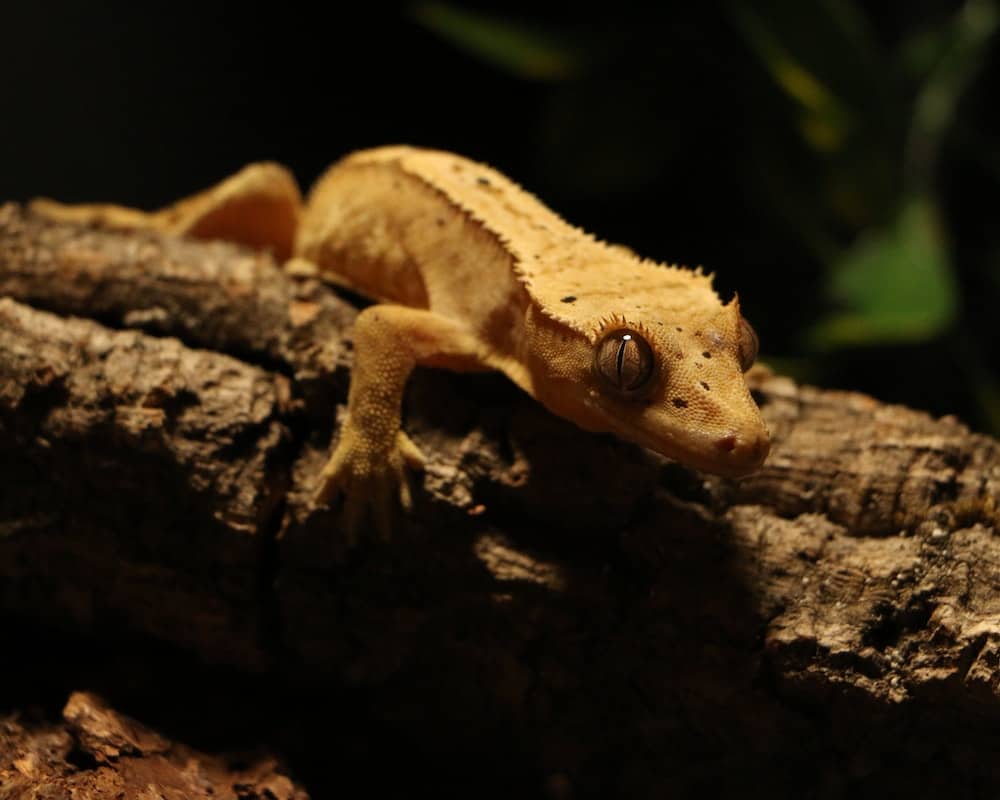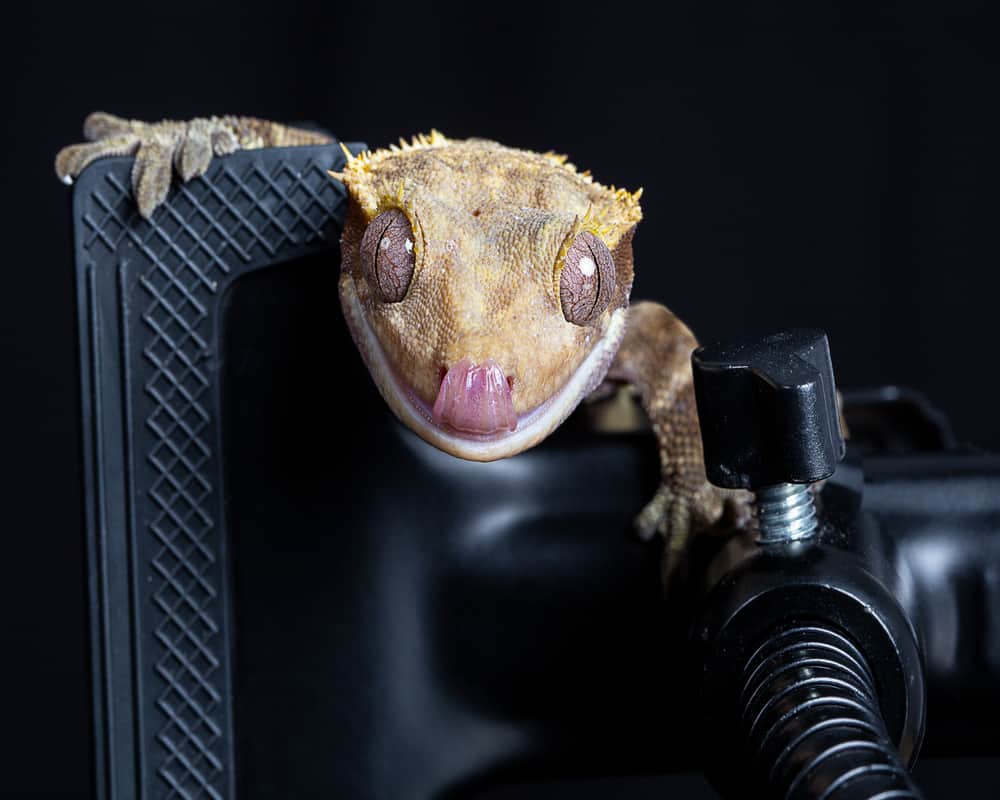Crested Geckos are one of the most common and popular pet lizards in many households. They are easy reptiles to care for and are very friendly. Once people start caring for their pet crested gecko, they tend to understand their behavior patterns and what they like and dislike. Initially, it can be hard to decode the reasons for their aggressive behavior. One of them is biting.
Yes, crested geckos do bite but not very often. Many crested gecko pet owners tend to get confused about why their lizard is biting them and what they have done for such behavior. You must know that crested geckos bite when they are defensive. When a crested gecko feels stressed out or threatened, it bites. Do not worry; you can prevent your crested gecko from biting by carefully handling it and giving it the space it needs.
Do Crested Geckos Have Teeth?
Yes, crested geckos do have teeth.
They have tiny teeth over 170. Crested gecko’s teeth are arranged into two rows, and they wear down gradually and get replaced by new ones over time.
The reason crested geckos have so many teeth is that each tooth of a gecko is only about 0.25 to 0.5 millimeters long.
You must know that crested geckos are born with fully developed rows of teeth, which assist them in hatching from their eggs. They use their teeth to break their eggs by creating a large hole from the inside.
As mentioned before, their teeth wear down gradually. This means crested geckos go through numerous teeth in their entire life. You won’t be able to witness the process as their teeth do not shed anywhere because they are so tiny that crested geckos usually swallow it once they wear out.
What you must note is that their teeth are not sharp. It may surprise you that crested geckos don’t use their teeth while chewing their food. They use setae present in their mouths to break down the food.
Also, since most of their food is small insects or soft fruits, they do not need to bite down the food.
Do Crested Geckos Bite Regularly?
Crested geckos do bite, but it is very rare. They only bite when they feel stressed or threatened.
Many pet owners like to raise crested geckos because of their nature. Crested geckos are well-behaved species, and they are easy to care for.
It might confuse a few when they see crested geckos biting. Biting takes place when crested geckos feel aggravated. You must keep in mind that biting is their defense mechanism. Otherwise, they are calm species.
Keep in mind that if your crested gecko is biting often, the reason can be that you are over-handling your gecko.
Check out this video of a crested gecko biting its owner!
Why Do Crested Geckos Bite?
Now that we know crested geckos bite, it is rare for them. Let us understand a crested gecko’s trigger points.
Here are the reasons that can trigger or make a crested gecko bite:
- If a crested gecko is overhandled during its initial days, it can stress the crested gecko. It will make a gecko feel threatened and stress them out. Remember, crested geckos do not like to be overhandled, and they can bite you if they do not like it.
- If you are holding a crested gecko in the wrong manner or at the wrong time, it can lead to biting.
- During mating, if a crested gecko is overhandled, it can agitate them and lead to biting.
- If a crested gecko does not like the surroundings in its tank, it can bite. Crested geckos like hiding spaces and proper coverage. If the tank does not have those and you have kept the tank open, it will stress your crested gecko, and your gecko will turn aggressive.
- If a crested gecko is not allowed to hunt in its tank, it can get aggressive and lead to biting. Hunting is a crested gecko’s instinct. Not providing live bugs regularly can agitate them.
- When a crested gecko is provoked, it will bite.
- If you have a baby crested gecko, it can mistake your finger for food and bite.
- In the case of an older crested gecko, if an older gecko was mishandled or mistreated by its previous owners, it can show signs of aggression toward the new owner. This is because of traumatic experiences.
- If two male crested geckos are put in the same tank, they will bite and fight each other. If a human intervenes in between or touches them, they will bite.
- Female crested geckos will feel protective about their eggs and can bite to protect them.
- If you have two crested geckos or any other gecko in the same house, your crested gecko will feel territorial, leading to aggression. Crested geckos can smell the existence of other geckos in the house. They can bite during handling or feeding when they smell your hand and will bite.
- Health issues can make a crested gecko aggressive and stressed out, which leads to biting.
Are Crested Geckos Venomous?
Many reptiles are indeed venomous, but you do not have to worry about crested geckos as they are not.
Crested geckos do not carry any venom or poison in their bodies.
Does the Bite Hurt?
Crested geckos, in reality, are nervous to bite humans or their predators because they know that their bite is not sharp or strong enough to affect the bigger person or animal.
So, if a crested gecko bites you, it will be like a pinch.
Now, you must remember that the bite will feel different for adults and small children. The bite can be more painful for small children.
If your small kids handle your crested gecko, ensure you assist them. This is because small children can overhandle or roughly handle a crested gecko which will make the gecko aggressive.
If kids are holding a crested gecko, ensure they are not squeezing or accidentally dropping it.
Though there is no set age at which a kid can handle a crested gecko, it is best to give it to older kids during handling.
This is because we can cause more danger to a crested gecko than they cause harm to us. If a child is holding a crested gecko and the gecko bites, there are chances of the kid dropping or throwing the crested gecko. This can lead to severe injuries to a crested gecko and even death.
Also, remember to put your crested gecko in the enclosure again after the bite. This will help a crested gecko cool down and not feel even more stressed.
How to Prevent Biting?
You can indeed prevent biting from taking place. Here are some measures you can take:
- Handle a crested gecko during the day rather than at night, as crested geckos are extra alert during night times.
- Do not handle your crested gecko a lot during the initial days. Start by picking them up during cleaning and placing them on a branch instead of holding them all the time.
- During the settling period, change the water and food in the tank during late afternoons. Afternoons are the time crested geckos fall asleep. Changing during this period will prevent you from disturbing the adjustment process.
- Begin with hand walking to bond with your crested gecko.
Note: Hand walking allows your crested gecko to jump or run from one hand to another. You can do this twice daily during the initial period and slowly increase this process.
You need to remember that it will take time for a crested gecko to get used to you and the surroundings. During the initial days, try not to overhandle and give your gecko its space to prevent biting.
Be patient and careful during cleaning, handling, and feeding.
Summing Up!
Crested geckos do bite, but it is very rare. They only bite when they feel stressed or threatened. To prevent this from happening, you must not overhandle them and give them the space they need as they like their privacy. Also, learn how to handle a crested gecko. This will be extremely beneficial.
Overall, keep crested geckos away from kids so that they do not get hurt and they do not hurt the crested gecko.
You must know that humans can cause more harm to crested geckos than they cause us harm.




